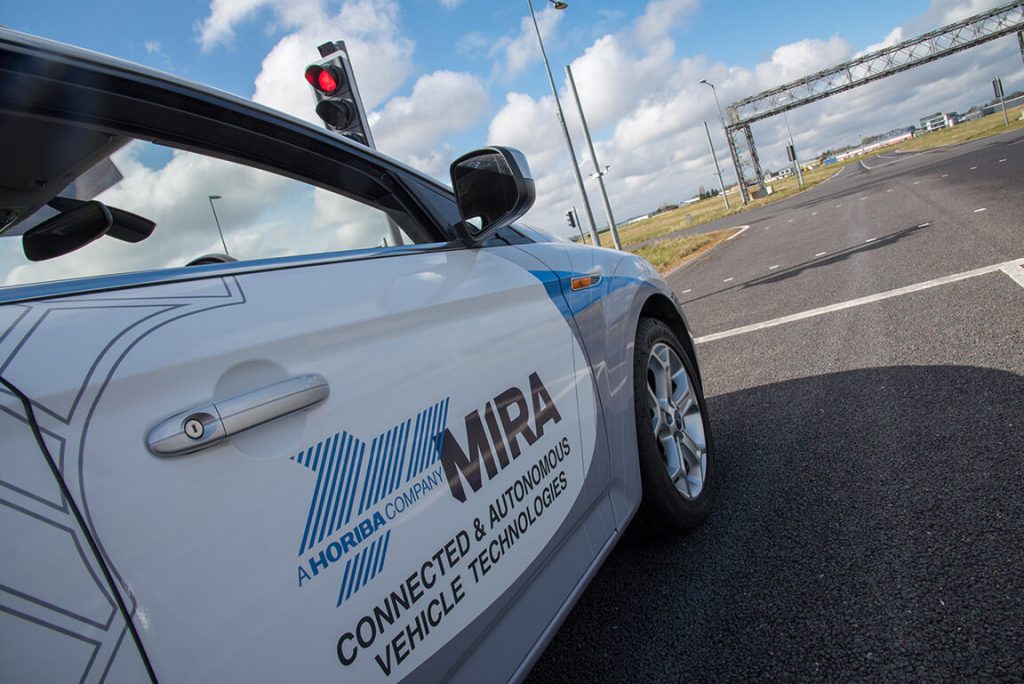The VeriCAV (Verification of Connected and Autonomous Vehicles) project will develop an integrated platform to allow Automated Driving Systems (ADS) to be tested in simulation.
As CAV technology becomes increasingly sophisticated (and the UK more prepared for driverless cars on public roads), the industry needs to explore ways to ensure autonomous vehicles operate safely. However, safety evaluation is laborious and complex, and real-world testing can be impractical and incomplete – simulation gets around these problems and opens the doors to evaluating multi-layered and uncommon situations.
The VeriCAV simulation will also mean significantly improving test efficiency when evaluating countless driving scenarios, and at the same time it can replicate the behaviour and actions of obstacles in a realistic and consistent manner.
Chris Reeves, Head of CAV Technologies, HORIBA MIRA Ltd., said, “There is a transformation taking place in the automotive sector. This transformation is being driven by the trend towards ever-increasing levels of connectivity and automation to the point where the industry is now talking in terms of the car being your biggest consumer electronic purchase.”
“This transformation is opening up huge commercial opportunities. It’s not, however, without major technical challenges in product development and the need to determine the efficacy of these systems using industry best practice test and validation processes. Simulation and modelling techniques and the creation of ‘digital twins’ will be critical in speeding up and reducing the cost of product development.”
Transport Systems Catapult CEO, Paul Campion, added, “We’re delighted to be a part of this ground-breaking project, which brings together a world-leading engineering and test facility, a global car manufacturer, the best of British SME innovation, plus renowned UK academic expertise, to revolutionise how CAVs are tested and implemented. This could be a game-changer; advanced simulation can help all sectors involved in introducing driverless cars to the roads understand the challenges and discover the solutions so that our future transport system is safe, efficient, environmentally- and user-friendly.”
Led by Horiba MIRA, VeriCAV consortium partners include: SAIC Motor UK Technical Centre, Latent Logic, Propelmee, Aimsun Ltd., the University of Leeds, and the Transport Systems Catapult.
The VeriCAV consortium was awarded the funding as part of the Centre for Connected and Autonomous Vehicles (CCAV) and Innovate UK competition to invest in industry-led, collaborative research and development projects in the area of CAV simulation. It is the first stage of CCAV’s approach to enhancing the UK’s testing ecosystem through simulation and modelling.

 HORIBA MIRA test vehicle
HORIBA MIRA test vehicle